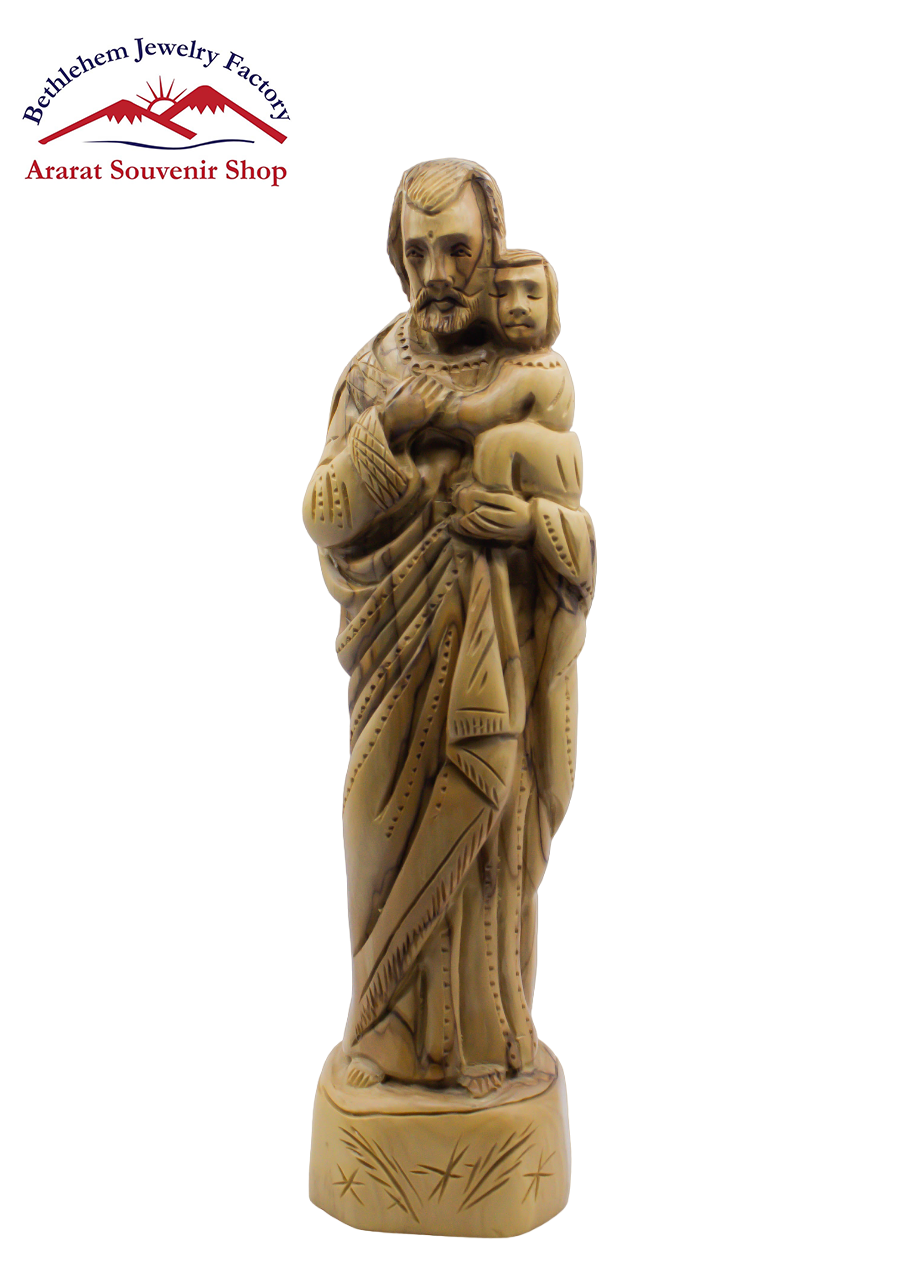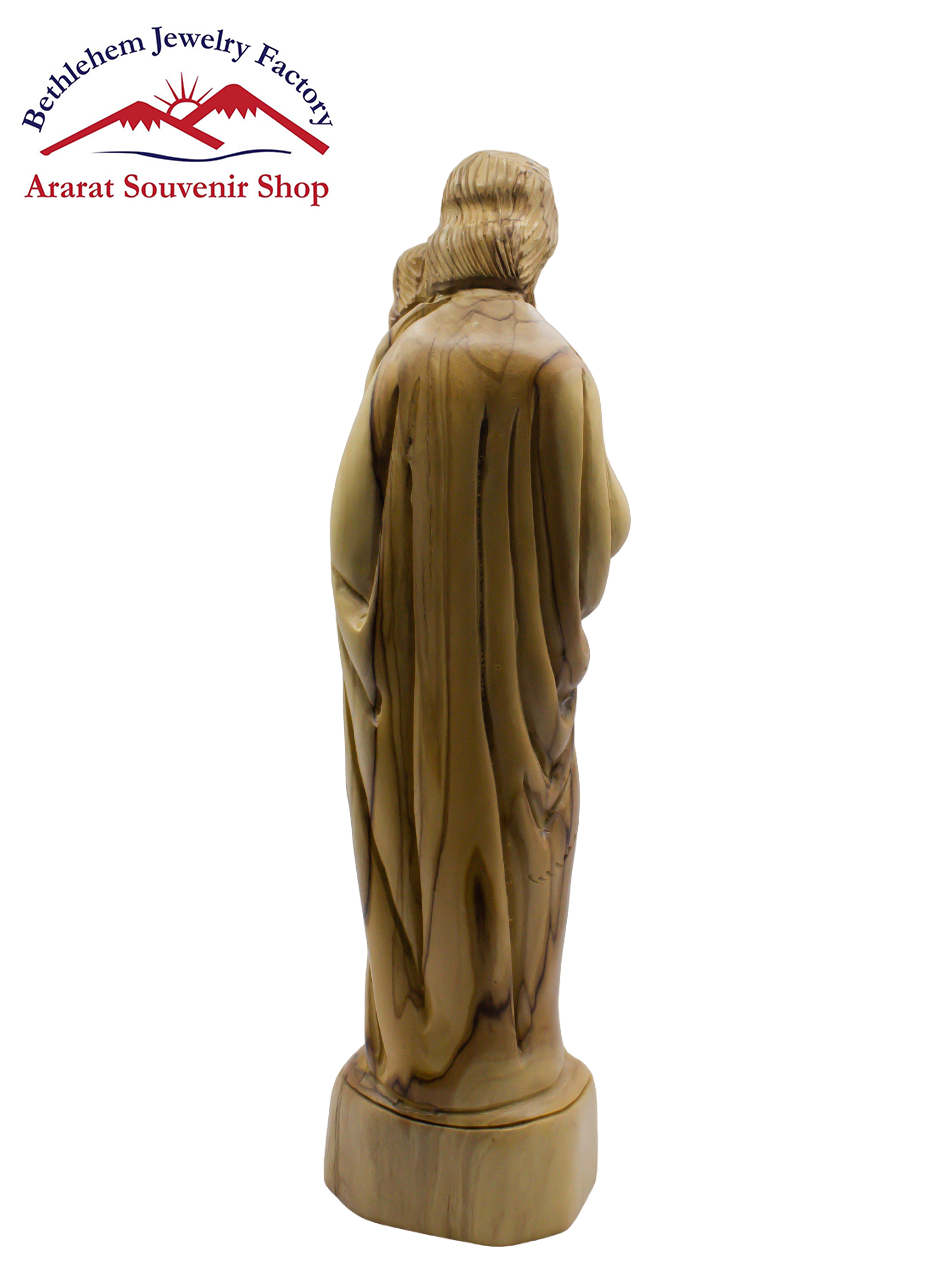Joseph with Baby Jesus
The image of Joseph with Baby Jesus is a profound and cherished representation in Christian art, literature, and spirituality. This depiction is not merely an artistic endeavor but a powerful symbol of love, guardianship, and the ideal father-child relationship. Saint Joseph, often overshadowed by Mary and Jesus in traditional narratives, emerges as an essential figure whose faithfulness, humility, and courage offer invaluable lessons about parenthood and divine purpose.
At the heart of this image lies the Incarnation, the belief that God became man through the birth of Jesus. Joseph’s role in this divine plan is crucial and multifaceted. He is introduced to us in the Gospel of Matthew as a righteous and just man, engaged to Mary, who finds herself pregnant through the Holy Spirit. Initially troubled by the news, Joseph embodies integrity in his decision-making process. Faced with a dilemma, he chooses to divorce Mary quietly rather than expose her to public shame. This compassionate response underscores Joseph’s character—one that prioritizes love and protection over societal expectations.
The turning point in Joseph’s journey arrives when an angel of the Lord visits him in a dream, urging him not to be afraid to take Mary as his wife, for the child she carries is from the Holy Spirit. The angel’s reassurance allows Joseph to embrace his role in a greater narrative, demonstrating an extraordinary level of trust in divine guidance. By accepting this tremendous responsibility, Joseph exemplifies unshakeable faith. His decision to stand by Mary and raise Jesus speaks volumes about the virtues of loyalty, sacrifice, and strength of character. He willingly steps into a paternal role that comes with not just love but also the weight of responsibility, ultimately embodying the ideal of servant leadership.
The imagery of Joseph holding Baby Jesus in his arms is steeped in meaning. Artists through the centuries have captured this tender moment, revealing the deep emotional bond between them. In many portrayals, Joseph is depicted looking down at Jesus with a mixture of awe, tenderness, and protectiveness. This gaze encapsulates the essence of fatherhood—the desire to nurture, guide, and safeguard one’s child. The very act of holding the infant Jesus signifies not just physical protection, but emotional nurturing as well.
Joseph’s role as a protector is particularly underscored in the narrative of the Flight into Egypt. After King Herod’s decree to kill all male infants in Bethlehem, Joseph responds to divine warning through another dream. Without hesitation, he takes Mary and Baby Jesus and flees to Egypt, showcasing both his decisive action and his commitment to protecting his family at all costs. This journey is a powerful reminder that fatherhood often involves making difficult choices, sometimes with little time for deliberation. Joseph’s actions illustrate the sacrifices parents must be willing to make for the safety and well-being of their children, reinforcing his role as a model for fathers today.
The dynamics within the Holy Family—Joseph, Mary, and Jesus—reflect an ideal familial relationship built on mutual respect, love, and faith. Joseph’s humble demeanor and silent strength counterbalance Mary’s grace and nurturing spirit, creating a harmonious environment for the spiritual upbringing of Jesus. This balance of qualities is essential, highlighting that effective parenting requires both strength and gentleness. Moreover, it prompts a broader understanding of family that goes beyond traditional definitions, inviting inclusivity and compassion into the family discourse.
In contemporary society, the image of Joseph with Baby Jesus resonates deeply, especially when considering the challenges many fathers face. The complexities of modern fatherhood often include balancing work, emotional availability, and societal expectations. Joseph’s example serves as an enduring model that emphasizes the value of commitment and presence. He teaches that true fatherhood involves more than just provision; it necessitates involvement, guidance, and emotional support. In a time when many families face fragmentation, Joseph’s unwavering support and dedication become a beacon of hope for fathers striving to create lasting bonds with their children.
In addition to the artistic representations, which range from Renaissance masterpieces to contemporary interpretations, the figure of Joseph continues to hold significant spiritual importance in religious practice. His feast day, celebrated on March 19th and May 1st (as Saint Joseph the Worker), encourages the faithful to honor fathers and reflect on their roles within their families and communities. Many congregations utilize this occasion to promote family values, emphasizing the importance of welcoming and nurturing relationships that mirror the love exemplified by Joseph.
Moreover, Joseph’s life and virtues extend beyond his immediate family. He is regarded as the patron saint of workers, fathers, and families, illustrating his universal appeal across various aspects of life. People turn to him for intercession in times of need, seeking his guidance in fostering healthy family dynamics and overcoming life’s challenges. This spiritual devotion highlights the belief that fathers, like Joseph, can aspire to lead their families with integrity, kindness, and faith.
Artistic depictions of Joseph with Baby Jesus are not limited to religious settings; they find space in homes and public places, inviting reflection and meditation on the essence of familial love. Each artwork tells a story—a story of sacrifice, joy, and the sacred bond that exists between a father and his child. Through these pieces, viewers are encouraged to reflect on their own relationships, fostering a deeper appreciation for the love and care that sustain families.
In summary, the image of Joseph with Baby Jesus carries profound implications for understanding fatherhood, family life, and divine purpose. It illustrates a model of parenting characterized by love, faith, and unwavering protection. Joseph’s commitment to his family, coupled with his humility and strength, provides a timeless framework for contemporary fathers navigating the complexities of parenthood. Ultimately, this portrayal invites individuals and families to cultivate relationships built on trust, compassion, and shared faith, ensuring that the legacy of Joseph and his love for Jesus continues to inspire generations. Through the lens of Joseph—a man who embraced his role with dignity and grace—the essence of fatherhood shines as a fundamental aspect of human experience, enriching both individual lives and communities alike.












Reviews
There are no reviews yet.